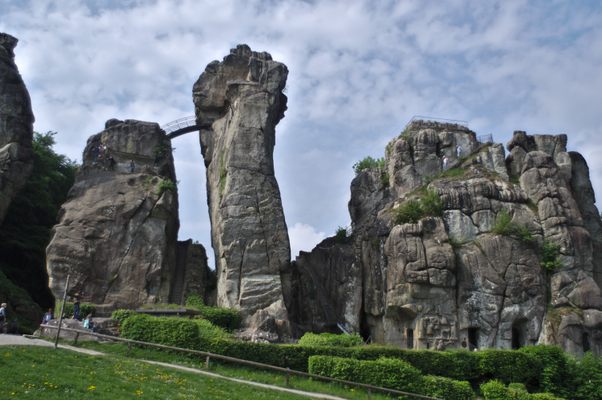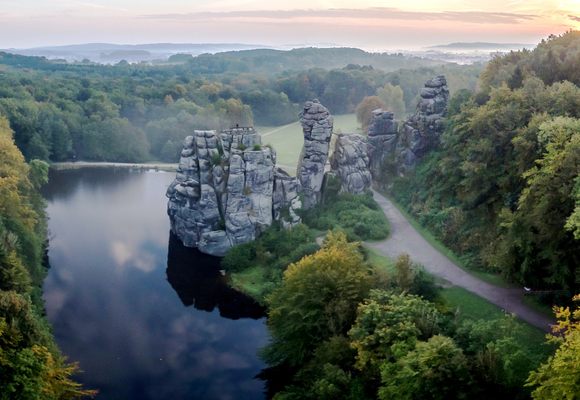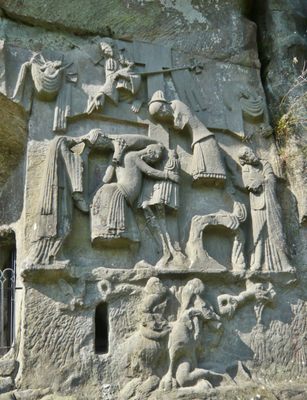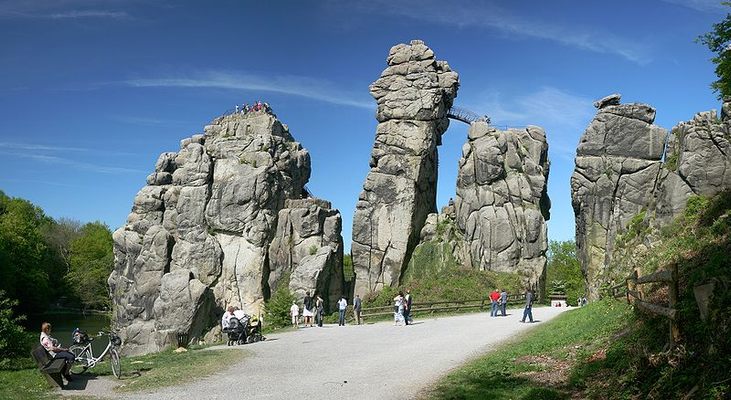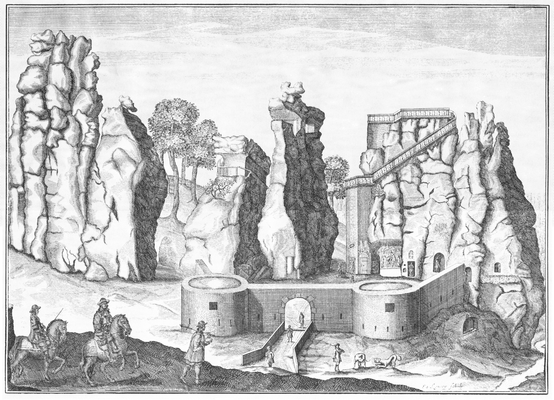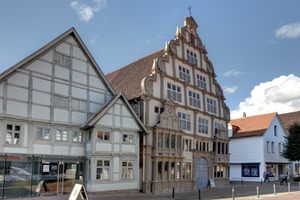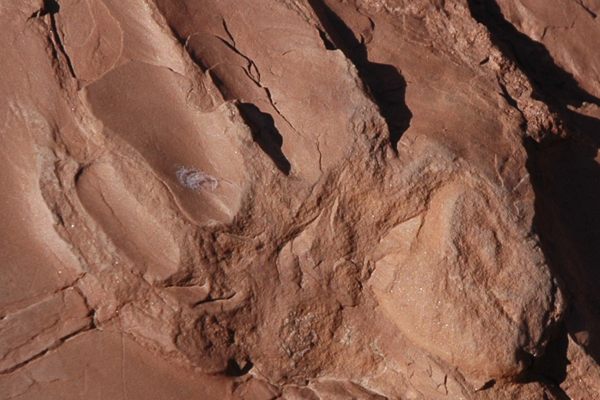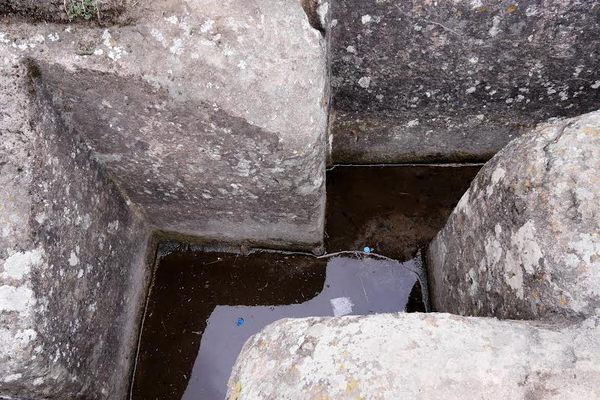About
Externsteine, translated variously as "stones of the Egge" or, less convincingly, the "Star Stones," is a series of pillar-like rock formations that jut up from the surrounding Teutoburg forest. No mere geological curiosity, Externsteine is also reputed to be an ancient and sacred palaeolithic worshiping ground, an astronomical calendar, and the location of a sacred pagan pillar known as an "Irminsul." Externsteine is a current mecca for Neo-pagans, Neo-Nazis and neo-pagan-Nazis.
In actuality, the pre-history of these rocks is largely unknown, and archaeological digs have turned up little to suggest they were of any great meaning to Paleolithic peoples. The odd rock formations were probably used as an occasional shelter until the late 700s when Christian monks settled at Externsteine and carved stairs and reliefs into the great stones. The site would continue to change purpose, serving as a fortress, pleasure palace, and prison before becoming something even stranger: a place famed for its history and spiritual significance despite the fact that the "history" is largely a fiction created by Nazi Occultists.
The lack of evidence as to the ancient importance of the Externsteine rocks didn't stop Heinrich Himmler from declaring otherwise. Himmler was the head of the Nazi's occult division "Ahnenerbe," a Nazi think tank that promoted itself as a "study society for Intellectual Ancient History." In reality, it was a pseudo-scientific organization devoted to finding, or fabricating, a glorious Germanic past. One of the sites the society identified as an important location of ancient Teutonic activity was Externsteine and the "Externsteine Foundation" was set up to "investigate."
Pulled into the bizarre space where Nazism and Occult pseudo-history overlapped, the actual history of Externsteine was overshadowed by an entirely imagined ancient Teutonic history. Even the carvings of the monks were incorporated by Nazi pseudo-historian Himmler, with one in particular said to depict Christianity crushing a Teutonic pagan God-pillar known as an "Irminsul." So far invested into this pseudo-history was Nazi Germany that according to author Gary R. Varner, the Nazi Youth gathered at Externsteine to sing pagan hymns during the solstice and on Hitler's birthday.
Today, the site remains in much the same historical chaos, with devotees of both Neo-Paganism and Neo-Nazism making pilgrimages to the site. Of course, other folks visit as well, and the site is fascinating even without the fictive history and cultural importance imputed to it. Made of five limestone pillars, the tallest over 100 feet tall, the site does indeed contain a number of astronomical elements (when they were created is still unclear) including a 20-inch window that aligns with the sun on the summer solstice. In addition, the stairs and relief carvings made by the monks add a real sense of meaning and awe to the place that has nothing to do with the crazed dreams of Nazi occultists.
There is a Woodstock-like festival at Externsteine every year on the summer solstice.
Related Tags
Community Contributors
Published
April 5, 2010
